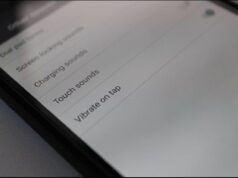In today’s data-driven business landscape, precise time tracking is no longer a “nice-to-have” but a necessity. The multifaceted role of time tracking goes beyond just counting hours. It is the foundation for payroll, customer billing, project costs, and operational efficiency.
If time tracking is inaccurate, businesses will lose huge amounts of money and competitive advantage. This highlights the critical necessity for reliable time-tracking systems like this free time card calculator.
The Imperative of Accurate Time Tracking
We all are familiar with the popular adage – Time is money. This adage holds truer than ever before in the modern workplace. An alarming 43% of hourly workers admit to time theft, highlighting the prevalence of inaccurate time reporting. This widespread problem has broad consequences. It ranges from payroll errors, compliance issues, and employee dissatisfaction to billing inaccuracies causing revenue losses. Without accurate time tracking, businesses will operate without a clear understanding of their operations.
Beyond payroll and billing, imprecise time tracking has detrimental effects on core operations too. The inability to accurately track time spent on projects leads to improper costing. This results in inaccurate budgets and an inability to price offerings appropriately. Ultimately, this impacts client relationships, profitability, and the very sustainability of the business. The imperative for accurate time tracking cannot be overstated.
In addition to the payroll and billing issues, inaccurate time tracking affects key business operations. The inability to estimate time spent on projects leads to inaccurate pricing. Thereby resulting in budget inconsistencies and difficulties in determining suitable prices for services or goods. This has a huge impact on client relationships, profitability, and the general viability of the organization. To combat the challenges posed by inaccurate time tracking, many businesses have turned to advanced tools like the time card calculator.
The Timecard Calculator: A Modern Solution
In light of these challenges, modern solutions like timecard calculators have emerged as indispensable tools for businesses. Timecard calculators are online tools that let you monitor your time across several projects, tasks, and activities. These technologies quickly gather time data and provide detailed reports and compute salaries automatically.
Timecard calculators come in various formats to meet different business needs. Robust desktop applications are ideal for larger enterprises. Whereas the free online tools serve the requirements of freelancers and solopreneurs.
Mobile time-tracking apps enable employees to log their hours conveniently, even on the go. The best timecard calculators seamlessly integrate with existing HR and payroll systems. It guarantees versatility, user-friendliness, and the generation of accurate time reports.
The Tangible Benefits of Using Time Card Calculators
Adopting a time card calculator offers tangible benefits at multiple levels. This makes them a worthwhile investment for any business. Some key advantages include:
Eliminating time theft: Digital time tracking helps businesses save the $11 billion lost annually to time theft in the US. Accurate records ensure employees receive a fair for time worked.
Streamlining invoicing and billing: Granular time tracking allows businesses to bill clients precisely for work completed instead of estimating hours. This improves cash flows while keeping clients happy.
Enhancing project profitability: Detailed time reports provide insights on resource allocation. This allows for more accurate project budgeting and pricing offerings profitably.
Improving productivity: Time tracking highlights productivity gaps that can then be addressed through better resource and time management.
Implementing Time Card Calculators: Best Practices
To reap the full advantages of time card calculators, proper implementation is key. Here are some best practices to follow:
Train employees on using the time tracking tool to create buy-in and ensure accurate data capture. To help them become comfortable with the tool, invest in thorough training sessions. This promotes buy-in and guarantees reliable data collection.
Conduct regular reviews to identify issues like inconsistent time logging and resolve them promptly. These reviews help maintain data accuracy and identify areas for improvement in the tracking process.
Recognize that behavior change takes time. Remain patient and persistent to drive adoption across the organization. Consistency is key in reinforcing the importance of accurate time tracking.
Integrate time card calculators with existing HR and billing systems for seamless data sharing. This integration enables efficient data sharing, minimizes data entry errors, and enhances effectiveness. Consider automation to further streamline processes and reduce manual effort.
Businesses may get great benefits from the use of time card calculators by adhering to these best practices. The impact on overall operations may be profound. It may range from greater project management and productivity insights to improved payroll and invoicing accuracy.
Keep in mind that success in this pursuit is a journey. And continual improvement is required to be at the cutting edge of effective time management.
Concluding Thoughts
Accurate time monitoring is crucial for survival and success as the corporate environment becomes more competitive. A contemporary, adaptable option for supplying businesses with accurate staff attendance data is the use of time card calculators. The advantages are preventing time theft, simplifying invoicing, increasing project profitability, and spurring productivity gains.
The benefits over the long run make employing time card calculators well worth the cost in change management. Businesses that embrace digital time tracking like this free time card calculator will be best positioned for the future.
Accurate time data is invaluable. Evaluate leading timecard calculator options that integrate with your systems and provide the analytics you need to optimize workforce productivity and profitability.
FAQs
How does a timecard calculator differ from traditional time-tracking methods?
Timecard calculators are digital tools that automatically capture, calculate and generate reports using time data. Traditional paper timesheets lack these advanced features and are prone to human error.
Are there any privacy concerns associated with using time card calculators?
Reputable time-tracking tools use robust data security protocols like encryption and access controls. Employees also have transparency into what is tracked. Valid privacy concerns can be addressed through internal data policies.
How do time card calculators handle overtime and other special pay scenarios?
Advanced time card calculators allow the creation of customized pay rules and automatic validation checks. These features correctly handle overtime, holiday, and weekend pay based on policies.
















